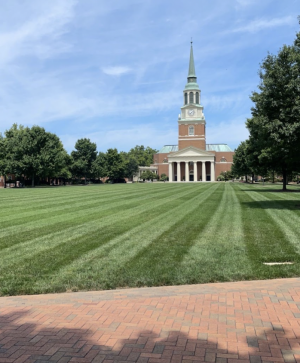Gatekeepers of justice, accountability: Investigative journalists deserve recognition, respect
Investigative journalism is an indispensable component of functioning democracy and the strongest way to hold authorities, institutions and one another accountable for our actions. At Staples and in Westport, Inklings reporters are not afraid to use their training to inquire, conduct research, fact-find and write articles to increase transparency on local issues. They should be recognized and applauded for their work, not overlooked or belittled.
A few weeks ago, I asked a friend to accompany me to dinner to take photos for an article I was writing. Though I offered to drive and pay for dinner, when they heard I would be taking photos for Inklings, they immediately repudiated the idea, refusing to associate with an Inklings activity.
I find it interesting when students at Staples and around the Westport community are so keen to dismiss Inklings News. Some parents view the organization as biased, claiming that the young reporters write with perspectives stemming from indoctrination from the school district.
Sure, not everyone is obligated to keep up-to-date with Taylor Swift album reviews and pumpkin pie recipes. But the lack of respect and recognition for the thorough investigative journalism in which Inklings reporters engage is detrimental to the fabric of the Westport community.
Investigative reporting was inaugurated by the Muckrakers–reform-minded journalists and photographers who agitated for necessary social reform between the 1890s and 1920s.
Today, their call to unveil truth and uphold justice is just as strong and just as necessary. On an international scale, Ukraine is experiencing unfathomable human rights abuses, and an international team of lawyers and journalists have mobilized to address the issue.
This team, called the Reckoning Project, partnered investigative journalists with lawyers to use the journalists’ unique skill-sets—including the ability to cold call people they have never met, conduct an interview and objectively write a story about what they learned—to train them to document war crimes in Ukraine. By documenting the crimes, they aim to not only give a voice to their communities, their societies and very often, the voiceless, but later submit their collected testimonies to be used in future indictments in the international courts.
In Ukraine, it is the journalists out in active war zones to record the devastation, not politicians. On a smaller scale, here at Staples, it is students who are the recipients of policy changes and rules, not their parents or the board of education.
So, the importance and benefits of investigative journalism manifest at Staples, too.
Inklings editorial articles are a key example of student-driven investigative journalism. These editorials address issues relevant to the student body and require a thorough amount of research, fact-checking and revision from both the editorial board and the editors-in-chief.
The September 2022 editorial, for instance, required the editors-in-chief to conduct schoolwide surveys, review Connecticut legislation to verify district policies, cross-reference student anecdotes for accuracy and examine a multitude of angles and scenarios to craft their article.
Unfortunately, investigative journalism is not as respected, acknowledged or appreciated as it should be. Inklings editorials are often recipients of harsh criticism from readers in the community, and while investigative journalism naturally deals with controversial or heated topics, journalists are not always made to feel welcome—as participants or spectators—in certain spaces. Oftentimes, the environments where people are most hostile to journalists are the places those journalists should investigate the most.
In the United States, journalists exercise their First Amendment rights when marshaling information to report on public issues. While harassment and badgering are sometimes an unfortunate reality of being a journalist, in a town like Westport, where people from all political parties, cultures and backgrounds care about issues impacting both the public and school communities, investigative journalism is a vehicle for producing meaningful outcomes, not an impediment.
Investigative journalism is so important to a vibrant society not because it is a unique practice, but because it is not. Many people may not even realize how much investigative journalists have contributed to changing societies in positive ways.
The Watergate Scandal that uprooted Nixon’s presidency was uncovered by reporters. Throughout the past seven years, plagiarism in the doctoral theses of Romania’s elite class was exposed by a Romanian reporter. An investigation into the catastrophic effects of Facebook’s online platforms was launched by Wall Street Journal reporters. Following a letter from a student in 2020, persisting issues surrounding race at Staples were documented by Inklings reporters.
Journalists know how to conduct research. They know which questions to ask and how to ask them. They pick up on minute details that non-journalists may overlook. Constructing an investigation-driven story is no easy task, but time and time again, reporters on both the international stage and in Westport address complexities of issues that administrators or parents may have inadvertently allowed to slip through the cracks of local dialogue.
This particular form of investigative reporting is not only a way to develop well-informed, highly topical stories, but those stories are tools of accountability for individuals, groups and entities in positions of power, from political candidates and officials, to local businesses, to school districts.
Investigative journalists are watchdogs of justice and safeguarders of the truth with a moral duty to speak out, even when discouraged. It’s time we treat them with the recognition and respect they deserve.

Business Manager Allie Gillman ’23 is a hard worker, whether it’s on the ski team, horseback writing or in her other school clubs. She enjoys the business...
























































